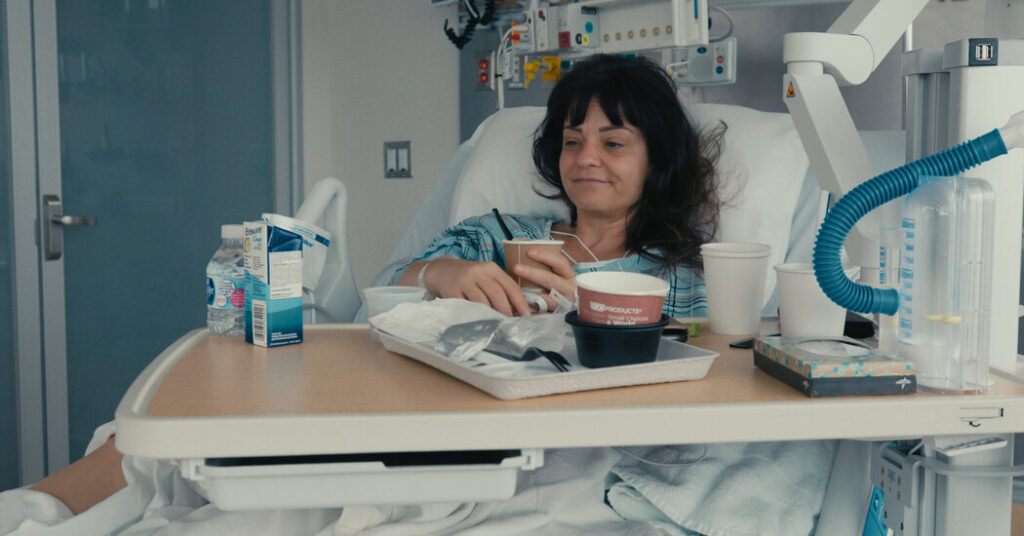Would you donate a kidney to a stranger? Early in “Confessions of a Good Samaritan,” the filmmaker Penny Lane (“Hail Satan?”) flips the question around. With so many people in need of transplants, why wouldn’t you give one of yours?
In the film, Lane puts this conviction to the test. Seated before a backdrop, she mulls over her drive to donate — she cringes at the idea that people will think she’s only doing it for a film — and explores the practice more broadly by interviewing doctors and other non-directed donors (a.k.a. altruistic donors). She pairs these testimonies with the history and ethics of organ transplants, including an impressive selection of archival clips. (I’d watch an entire documentary about the Dutch “Donor Show” that featured patients supposedly competing for a transplant.)
But what begins as an optimistic piece of advocacy eventually veers into something more complex, ambivalent and even frantic. As Lane prepares for surgery, undergoing health screenings and drawing up a will, she grows increasingly aware of her solitude. A single woman without children, she struggles to name a health care proxy, cries while appointing a cat guardian and worries about being alone during recovery.
Lane’s grappling with these feelings lends depth to what could have been a pat participatory exercise. The film never draws a line between its subject’s isolation and despair and that of the tens of thousands of Americans awaiting kidney transplants, but it doesn’t have to. Like the deed of a good Samaritan, the work speaks for itself.
Confessions of a Good Samaritan
Not rated. Running time: 1 hour 45 minutes. In theaters.


